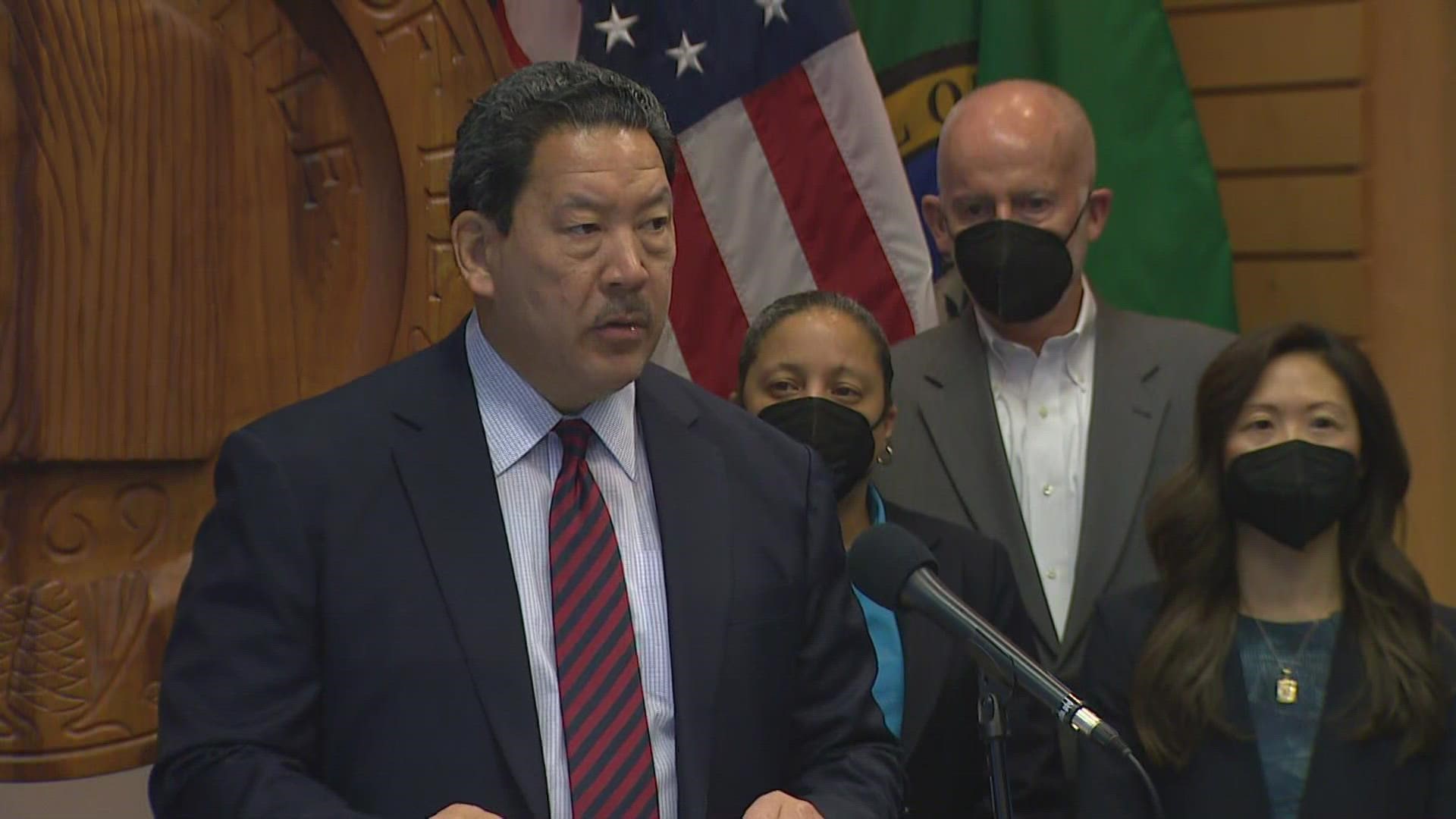SEATTLE — Mayor Bruce Harrell is extending Seattle's pandemic-sparked eviction moratorium for 30 days by way of a new executive order until Feb. 14.
Harrell announced the extension of the moratorium, which bans residential evictions unless there is an "immediate threat to life and safety," Wednesday after six extensions by former Mayor Jenny Durkan. It would have expired on Saturday.
Harrell will issue an executive order as COVID-19 cases surge once again amid the new omicron variant.
“Over the next month, we will continue to track changing conditions and seek improved metrics to evaluate the effectiveness of the moratorium and aligned policies. Our actions will continue to be driven by data and our values, focused on preventing a rise in homelessness and supporting the tenants and small landlords most in need," Harrell said. “I am refusing to simply extend the moratorium and sit idly by as if our work is done – the City must go further to pursue the most effective methods of support for tenants and small landlords."
In addition to the extension, the executive order will do the following:
- Form an interdepartmental team to help streamline funds helping those tenants and landlords impacted by the pandemic, enhance data collection, develop an online portal to better connect tenants and landlords to resources and assess the unintentional negative consequences of the moratorium.
- Develop an outreach and education plan for residents at risk of eviction so that they can know their rights should the moratorium end
- Create an advisory group of three tenant advocates and three small landlords
- Evaluate the city's intergovernmental coordination in receiving and distributing assistance funds to tenants and landlords
- Reviewing the related effect of utility relief policies and utility shut off suspension, including the long-term impact on all residents
- Identifying and delivering outstanding assistance to tenants and small landlords for their utilities
"At the end of the day, here's our value: we can't have anyone suffer homelessness because of financial challenges given the situation we're in. That is our underlying value," Harrell said.
Renters and landlords have been watching the news closely leading up to Wednesday's announcement. Some renters said while they'd like to see the moratorium extended, it doesn't go far enough to protect tenants. Some landlords said if the moratorium is extended, they'd like to see more exceptions to the ban.
Charlotte Thistle of Seattle Grassroots Landlords is one of those property managers.
"The bar is quite high because I talked to several people who had serious situations going on, and they were told by lawyers they were not going to be able to go forward with an eviction," Thistle said. "My hope is that there's some common-sense measures that will be adopted that will allow for things that are currently not allowed under Mayor Durkan's eviction moratorium,. including an owner who wants to reoccupy their own home, an owner that wants to sell their home ... if there's a harassment issue, a provision for dealing with harassment, a provision for dealing with property damage."
Thistle said she is a single mom who owns one house, which she lives in, and rents out rooms. Though she would appreciate those exceptions, she'd also like to see the moratorium ended altogether.
"Most of [the small landlords I know] feel the eviction moratorium has gone on long enough and that also in Seattle, there's still the winter eviction ban that goes through March so it is time to let it expire," Thistle said.
Devyn Forschmiedt, a renter who advocates with the Cancel the Rent Coalition, disagrees that it's time for the moratorium to expire.
"Having the eviction moratorium has helped in some ways to take a load off of a lot of people, knowing you can't actually be thrown out into the street in the middle of a pandemic, however the pandemic is not actually over yet, it's actually been getting a whole lot worse," Forschmiedt said. "Looking toward it ending most likely is more dangerous than it ever was. It's been great to have it, but at the end of the day, nothing was ever put into place to help people once it does end. We had a moratorium on evictions without stopping and cancelling rents and mortgages."
Forschmiedt said while the moratorium should be extended, there are also other measures that should be put into place.
"Extending the moratorium is completely necessary, ending it would make things astronomically worse," Forschmiedt said. "But whenever it does end we're still going to have the same problem without having more concrete, ongoing change. A sustainable solution would be building affordable housing. Social housing, public housing."
You can view Seattle Rental Assistance Data here.

